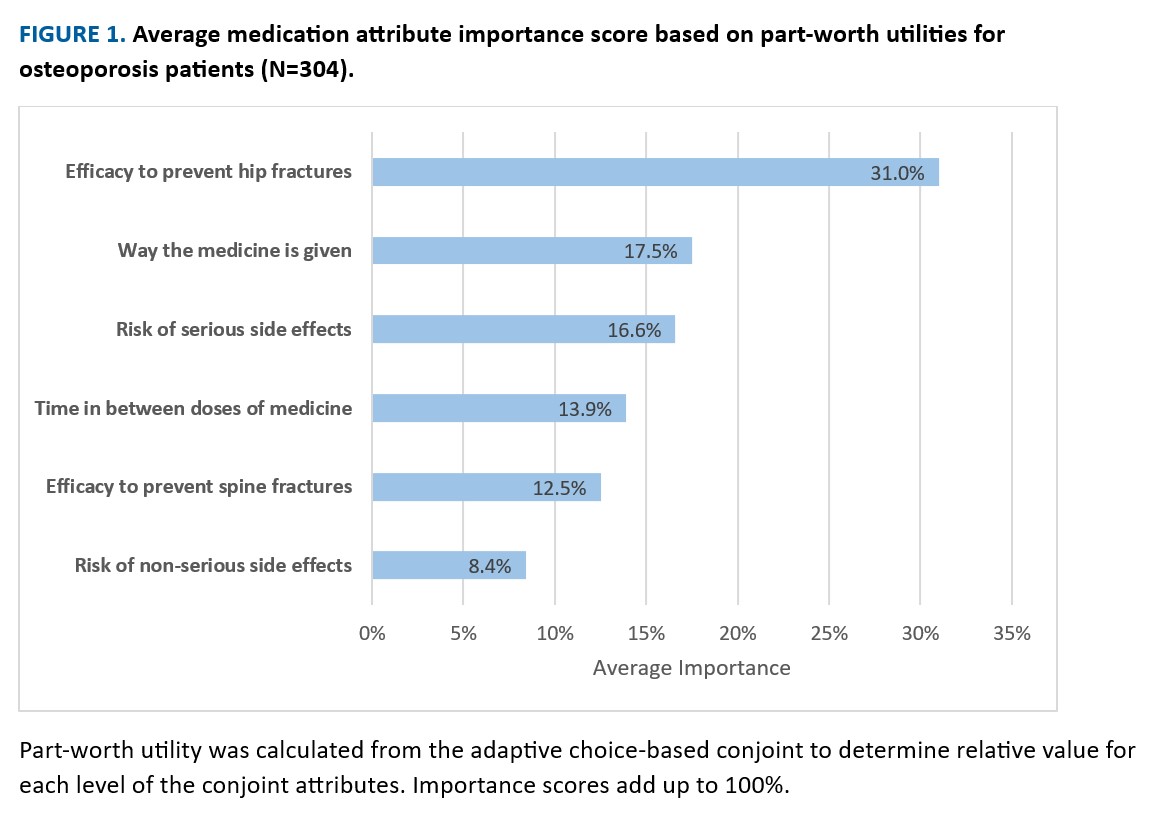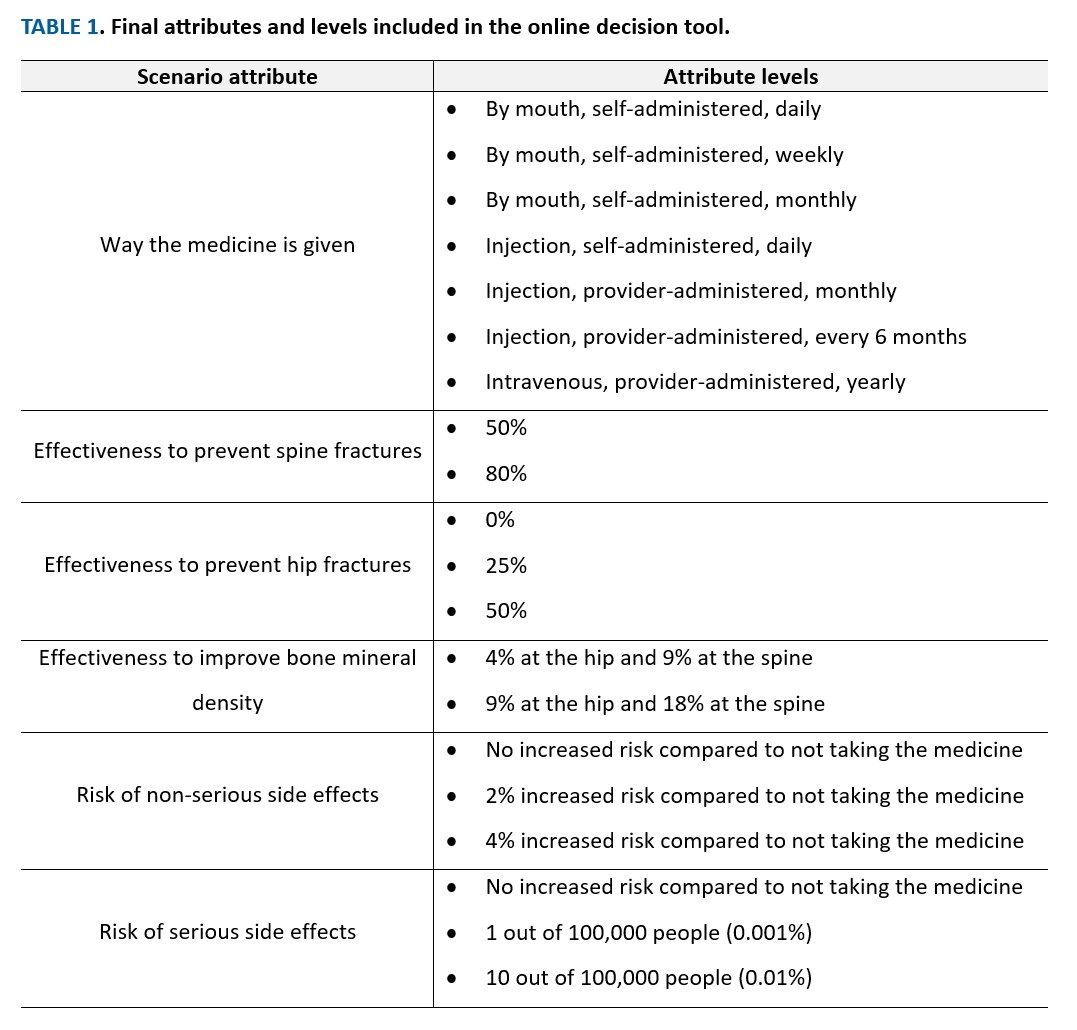Session Information
Date: Tuesday, November 14, 2023
Title: (2019–2038) Patient Outcomes, Preferences, & Attitudes Poster III
Session Type: Poster Session C
Session Time: 9:00AM-11:00AM
Background/Purpose: Osteoporosis (OP) treatment options have different attributes based on mode of administration, frequency of administration, risks of minor and serious side effects, and effectiveness, among others. People living with OP (pts) prioritize different aspects of OP treatment based on their own preferences and on physician recommendations. The study’s objective was to assess individual preferences among pts to inform an online decision-making tool for OP treatment.
Methods: An adaptive choice-based conjoint (ACBC) analysis survey was developed to quantify the relative importance of 6 OP medication attributes. Pts from Cedars-Sinai academic medical center were invited to complete the online conjoint exercises. The conjoint software determined each pt’s preferences by calculating importance scores for each medication attribute (higher=more important). Results of the conjoint exercise were used to develop an online treatment decision-making tool for OP. We then tested the tool and the website it lives on with OP pts to improve functionality. User testing involved recruiting a sample group of OP pts from the ArthritisPower research registry to review the website and use the tool while researchers remotely observed their behavior and collected feedback.
Results: A total of 304 pts completed the ACBC survey. Based on importance score, the most important attributes in the decision-making process were efficacy at preventing hip fractures (31.0%), way the medicine is given (17.5%), and risk of serious side effect (16.6%) (Figure 1). Attributes and levels for the final decision-making tool were based on results of the ACBC survey and informed by currently available treatment options, iterative feedback from providers and drug manufacturers, and user testing with 5 OP pts. Effectiveness to improve bone mineral density (BMD) was added as an attribute to reflect currently available OP treatments that demonstrate improvement in BMD but lack clinical data demonstrating effectiveness to prevent fractures. User testers encountered challenges with understanding how certain questions worked. While the question types could not be changed, as they are fundamental to the conjoint analysis exercise, the functionality of some of the questions were improved and additional directions were added at the start of the tool.The decision-making tool with final list of attributes and levels is being developed and disseminated by a patient advocacy organization (Table 1).
Conclusion: Pts with OP may benefit from identifying personal preferences using an online treatment decision-making tool developed with input from pts, providers, and researchers. A publicly available tool such as this may facilitate productive patient-provider conversations and foster shared decision-making for OP therapies in fracture liaison services and other clinical settings.
Part-worth utility was calculated from the adaptive choice-based conjoint to determine relative value for each level of the conjoint attributes. Importance scores add up to 100%.
To cite this abstract in AMA style:
Curtis J, Gavigan K, Nowell W, Curtis D, Ali D, Liu X, Makaroff K, Almario C, Khalil C, Choi S, Spiegel B. Osteoporosis Treatment Attributes and Levels for an Online Decision-Making Tool for Patients: Findings from Adaptive Choice-Based Conjoint Analysis [abstract]. Arthritis Rheumatol. 2023; 75 (suppl 9). https://acrabstracts.org/abstract/osteoporosis-treatment-attributes-and-levels-for-an-online-decision-making-tool-for-patients-findings-from-adaptive-choice-based-conjoint-analysis/. Accessed .« Back to ACR Convergence 2023
ACR Meeting Abstracts - https://acrabstracts.org/abstract/osteoporosis-treatment-attributes-and-levels-for-an-online-decision-making-tool-for-patients-findings-from-adaptive-choice-based-conjoint-analysis/


